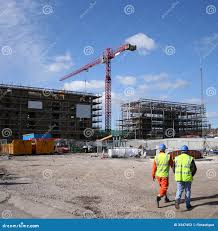
GREENSBORO, N.C. — A nonprofit developer in Greensboro is sounding the alarm over rising construction costs tied to federal tariffs—warning that already tight budgets for affordable housing projects may be stretched to the breaking point.
Just off Freeman Mill Road, more than six acres of land have been set aside for a project aimed at creating affordable housing for some of Guilford County’s most vulnerable residents. But those plans could now be slowed—or even scaled back—due to increasing material prices tied to international trade tensions.

“Once this ball starts rolling, you just can't stop it,” said Scott Jones, executive director of Tiny House Community Development, a Greensboro-based nonprofit building affordable housing, especially for veterans and seniors experiencing homelessness. “You can't kick it back in reverse. It's going to have to play out.”
Jones said the group has already begun seeing a noticeable impact on the cost of building materials, and he's concerned that further increases could derail timelines and drive up prices for housing units that are supposed to be low-cost.
“Our suppliers do buy from overseas, from China and Japan and just different places,” he said.
Jones explained that construction of even a single tiny home depends on a range of materials from around the world. While lumber might be sourced from Canada, essential components like electrical panels, siding, and fixtures often originate from countries such as China and Japan.
“Even siding comes from outside the United States,” Jones said. “You know, there are a lot of different products that go into a house that just are not made here in the U.S. Being a nonprofit, we can't buy them in bulk and store them for very long, so we have to spend basically on whatever the market is at the time, and as it increases, that's going to be a cost that we have to figure out how to accommodate.”
Unlike larger for-profit builders, nonprofits like Tiny House Community Development operate on limited budgets and lack the ability to purchase or store large amounts of materials ahead of price increases. That puts them at the mercy of volatile markets.
Jones added that he’s already seeing small price jumps, but what truly worries him is the uncertainty of the long term. As global supply chains fluctuate and tariffs continue to shift, planning future builds becomes increasingly difficult.
“I don't know what to do,” he said. “All we can do is continue to keep building, and if that means we build slower, or that means we have to find new sources to help us to build.”
Beyond construction delays, the ripple effect of rising costs could also reduce community support. As prices go up, Jones explained, it's harder for suppliers to offer discounts or donate materials to nonprofits—something many organizations rely on to complete their builds.
“Increased prices mean suppliers have less wiggle room to help nonprofits like ours,” he said, noting that may require the group to return to the drawing board and rethink its budget and project timelines.
To stay on track, Jones said the organization will be relying more on local donations and community partnerships to fill any funding gaps created by rising costs. He urged the public to stay involved and support affordable housing efforts, particularly during times of economic uncertainty.
Originally reported by Joshua Davis in WXII 12 News.
The smartest construction companies in the industry already get their news from us.
If you want to be on the winning team, you need to know what they know.
Our library of marketing materials is tailored to help construction firms like yours. Use it to benchmark your performance, identify opportunities, stay up-to-date on trends, and make strategic business decisions.
Join Our Community






